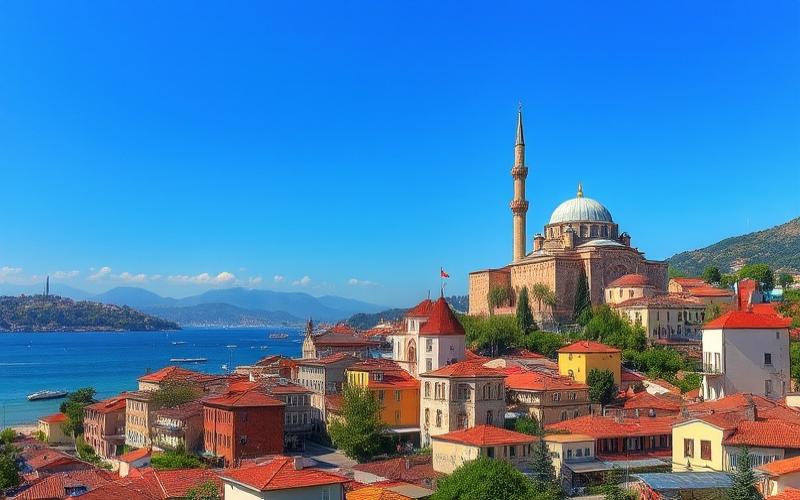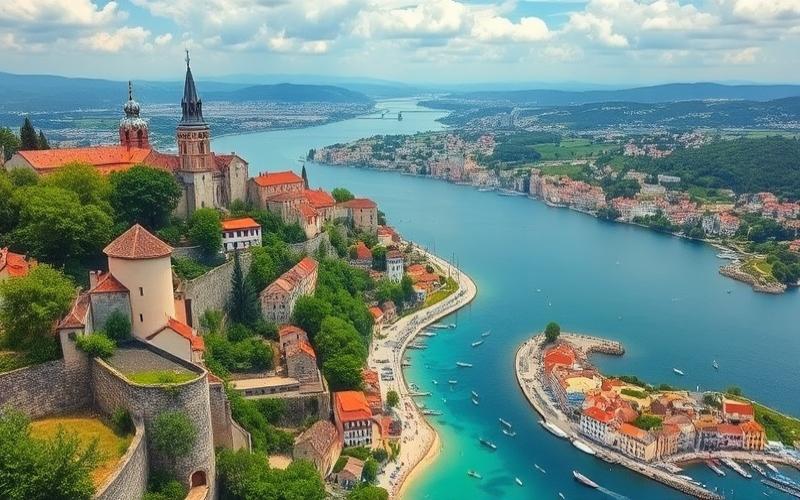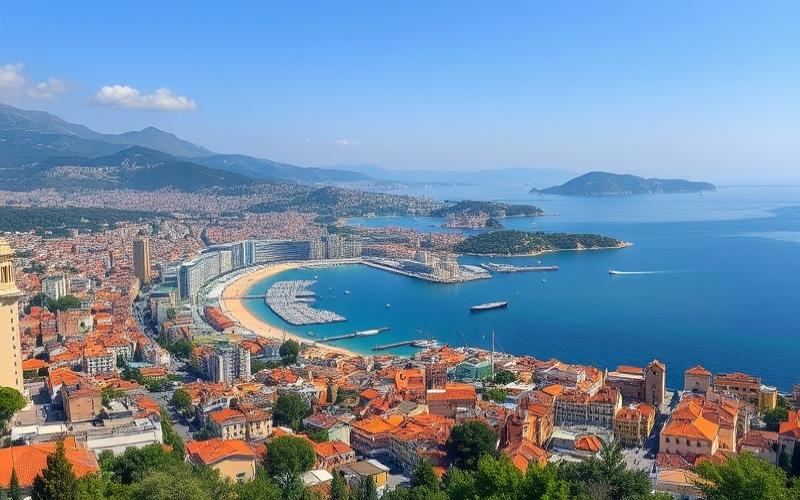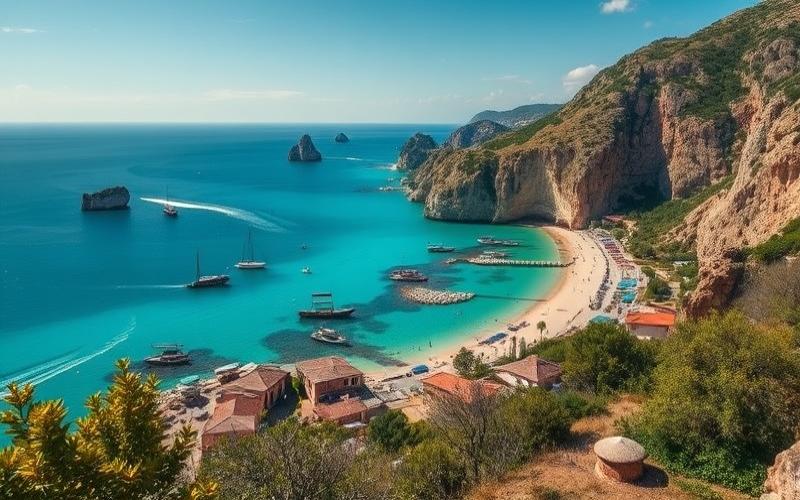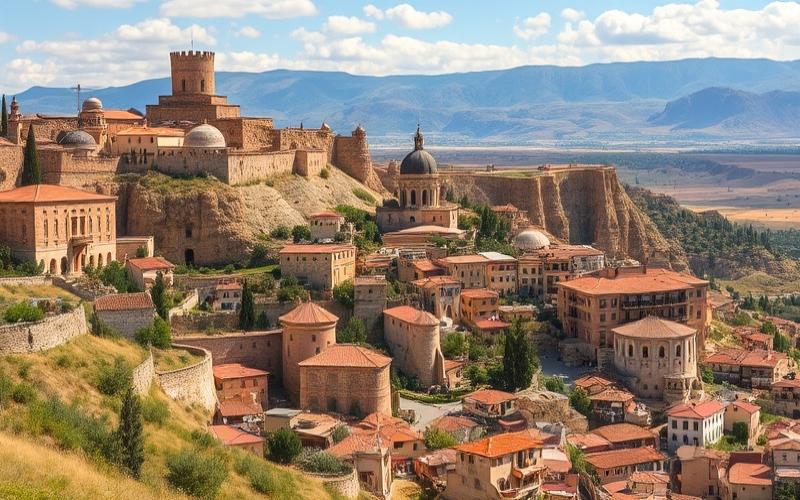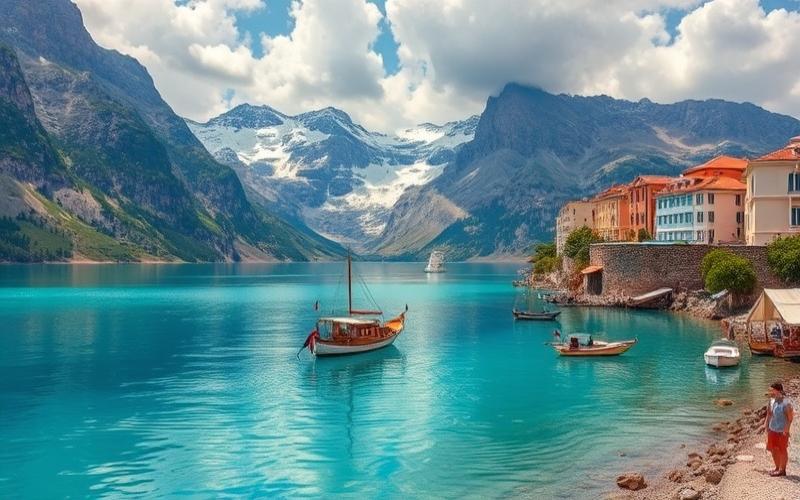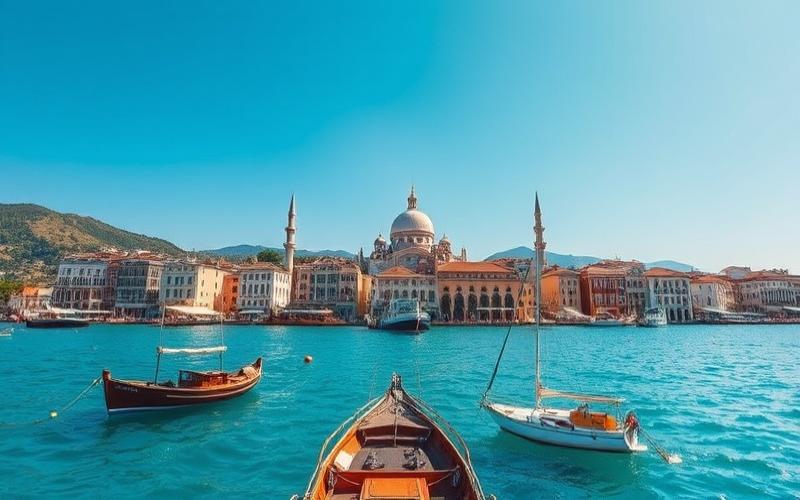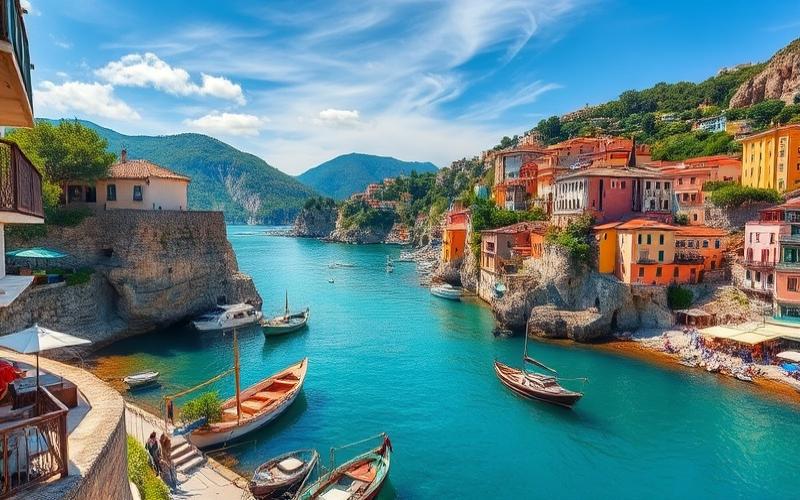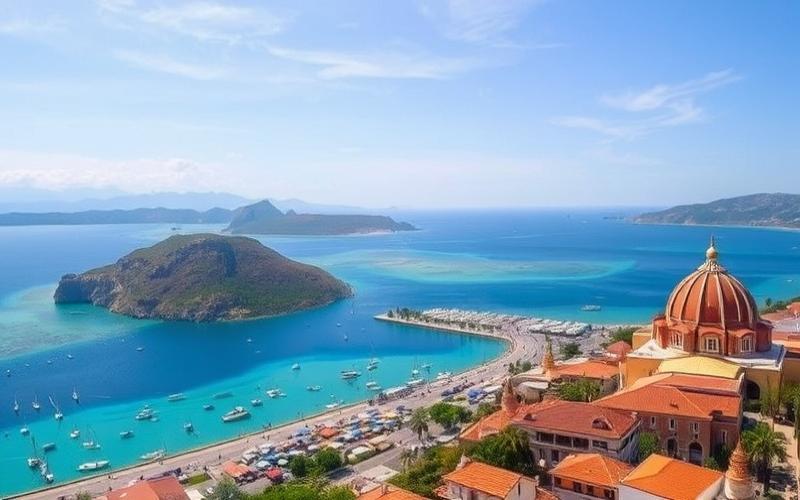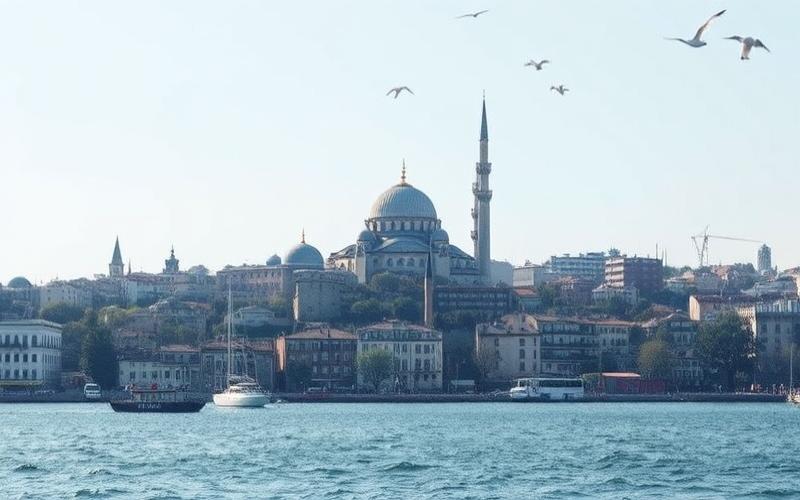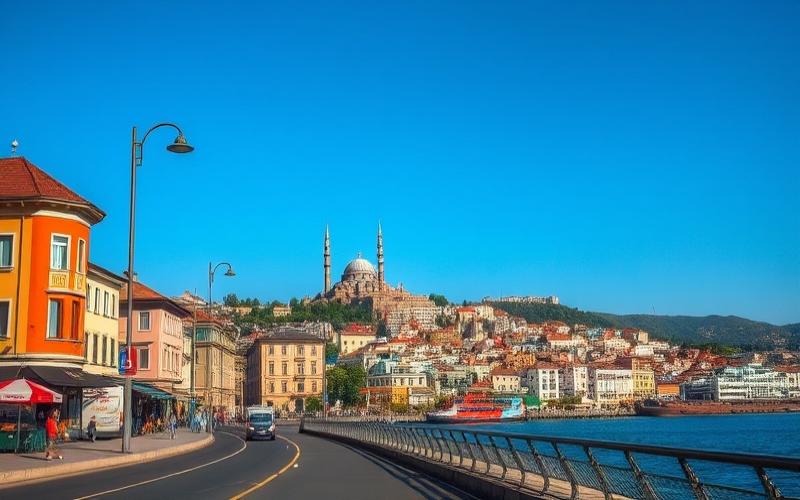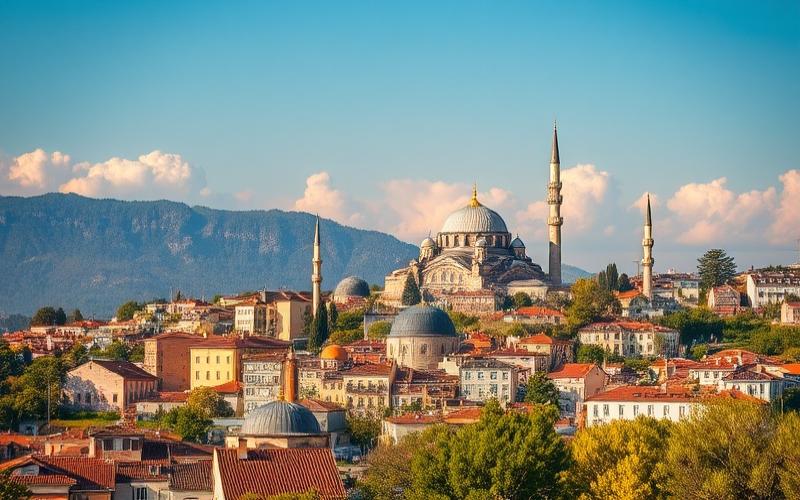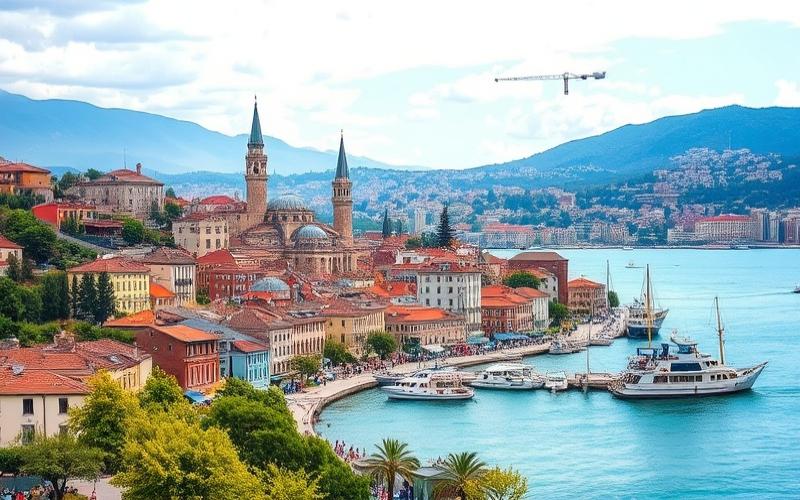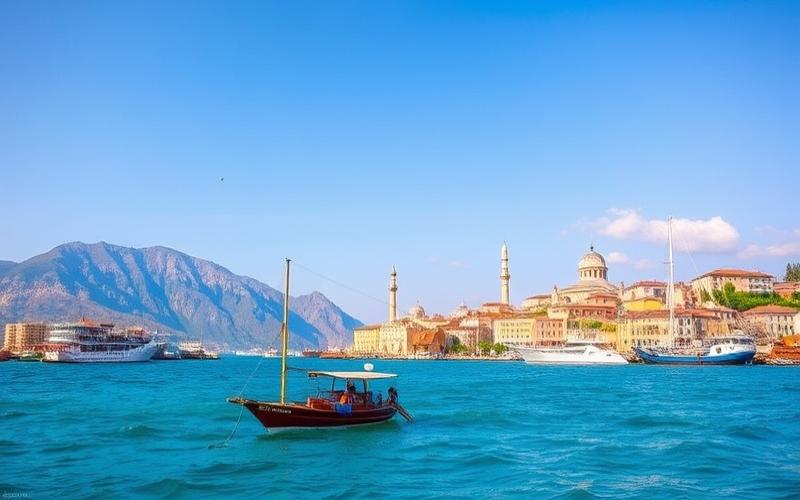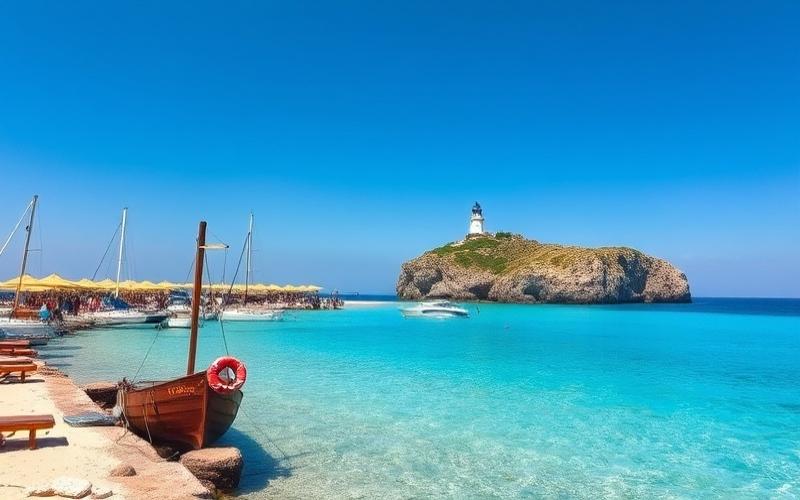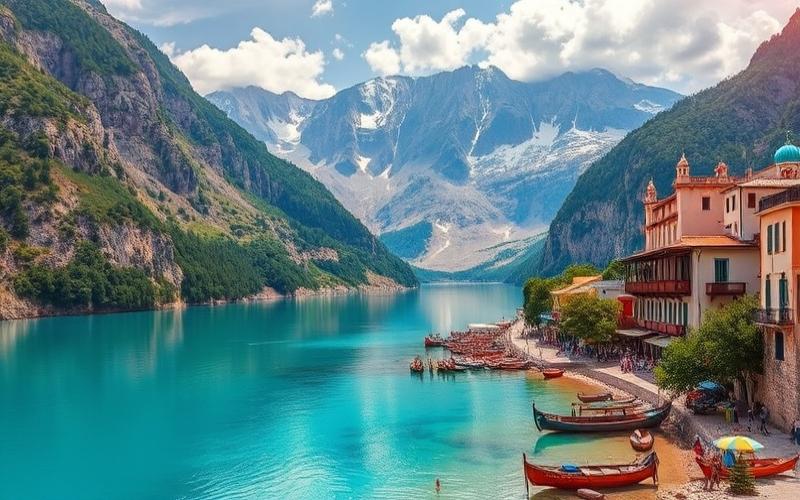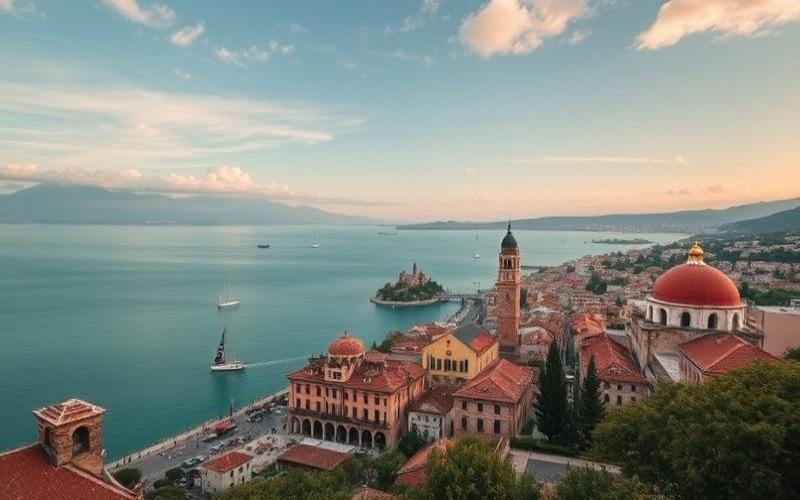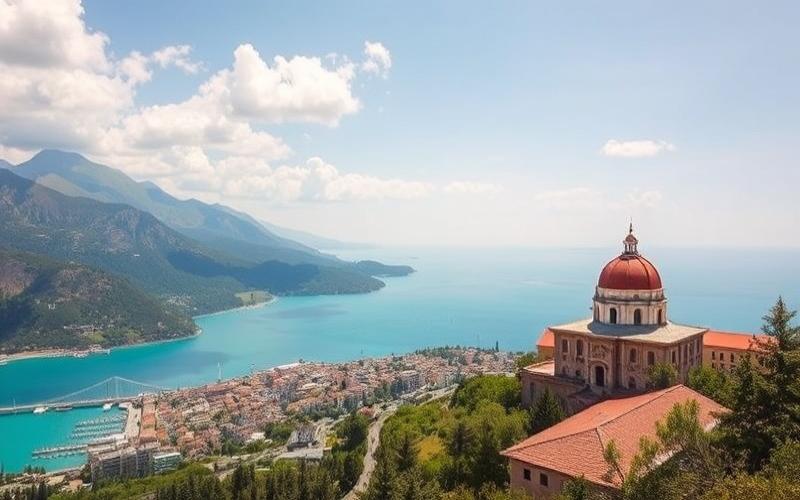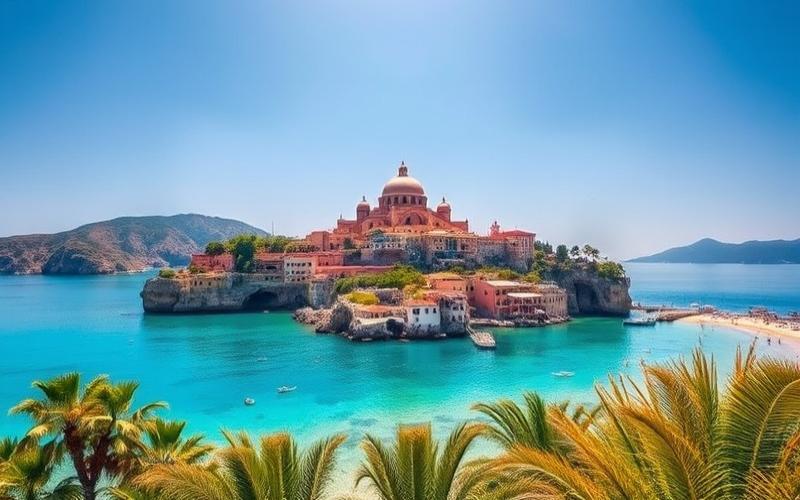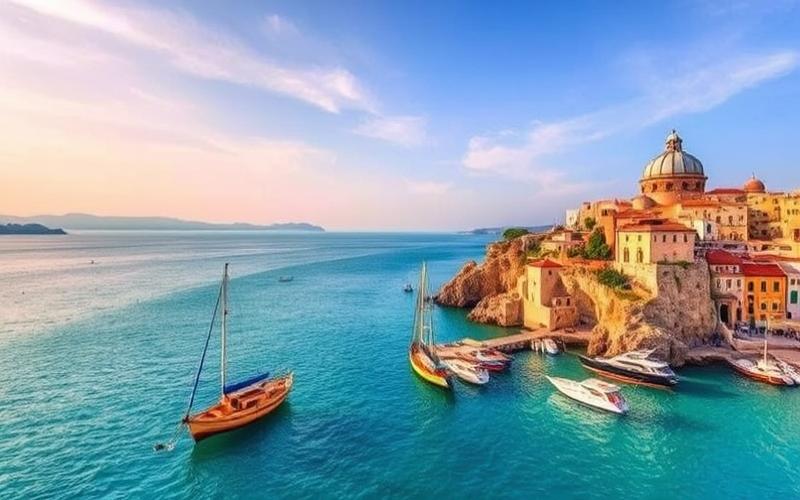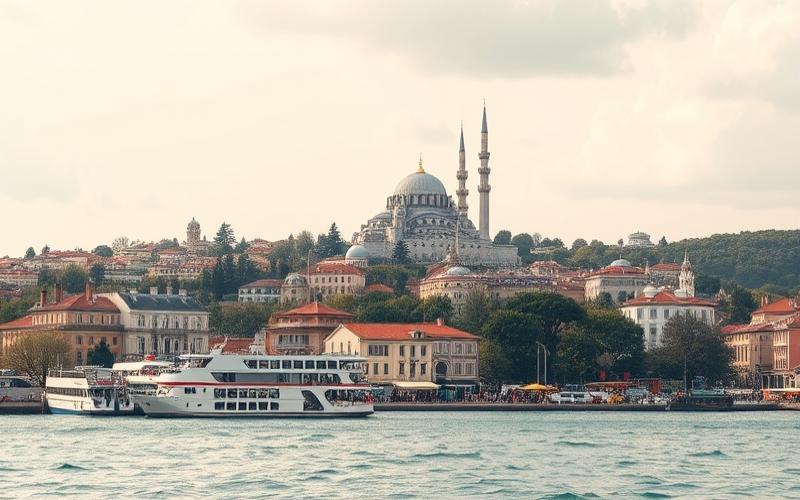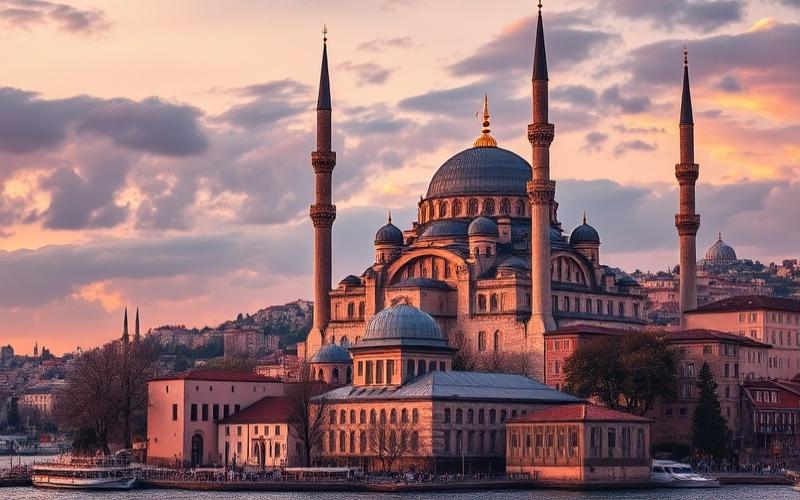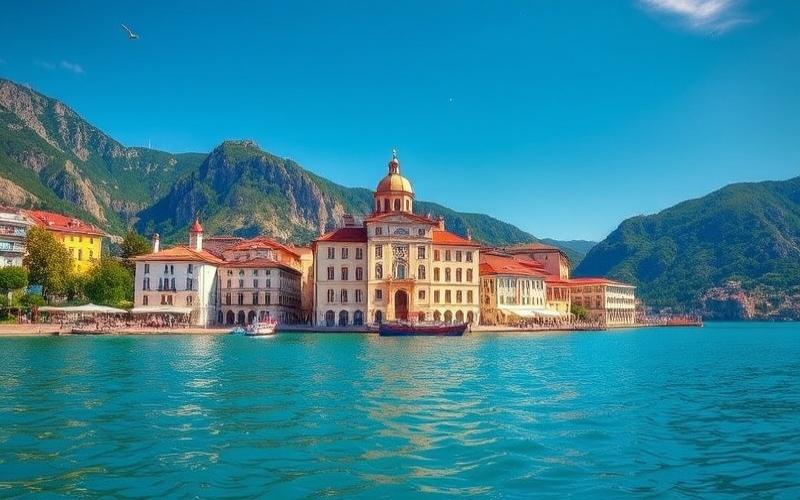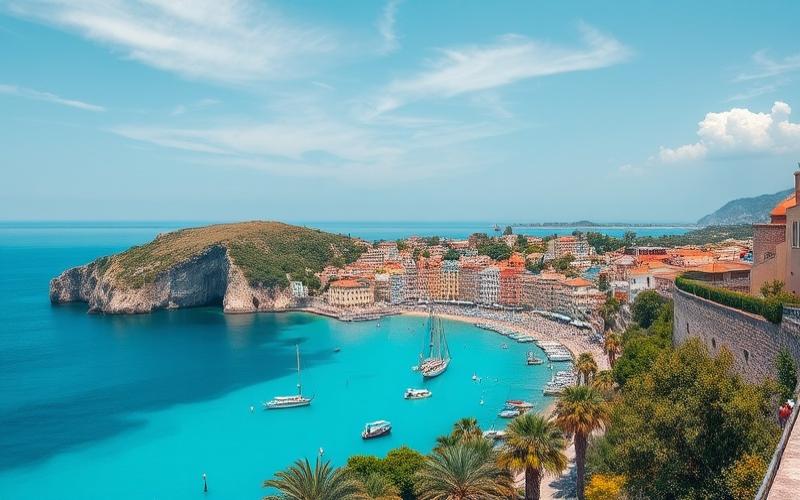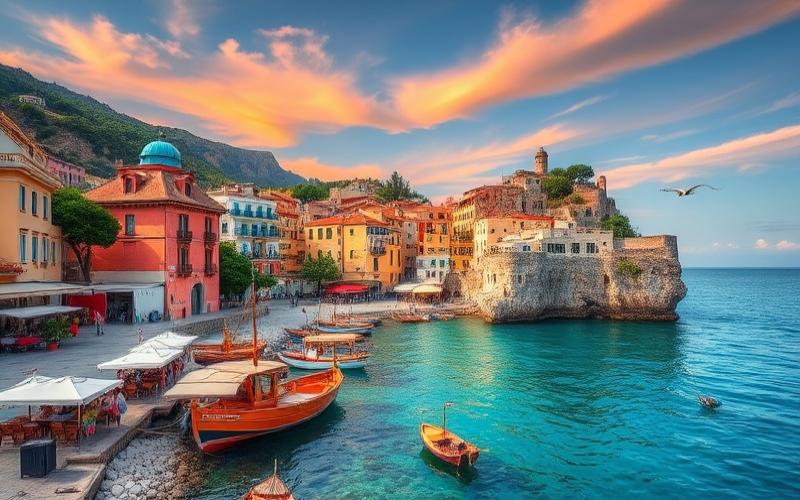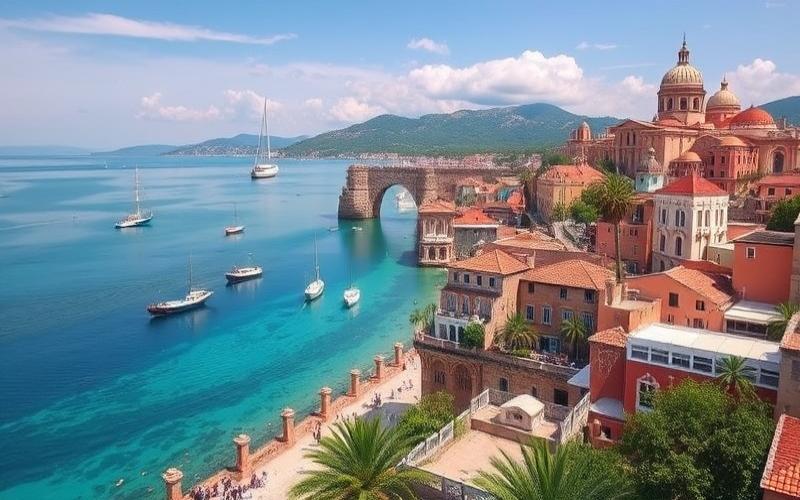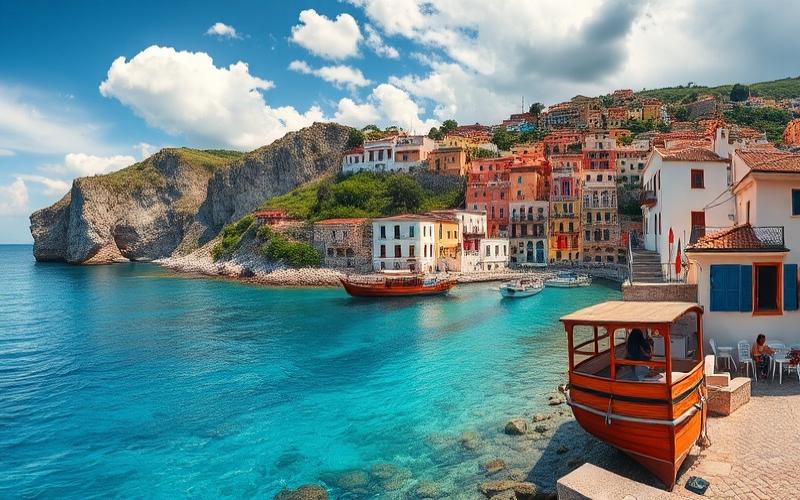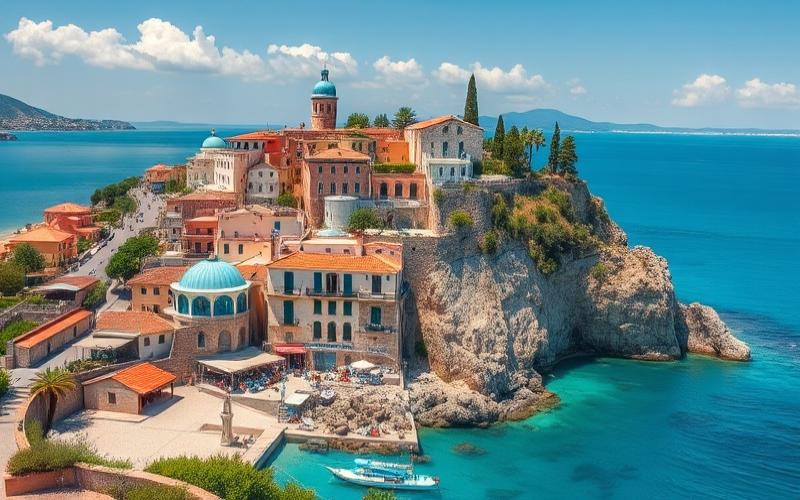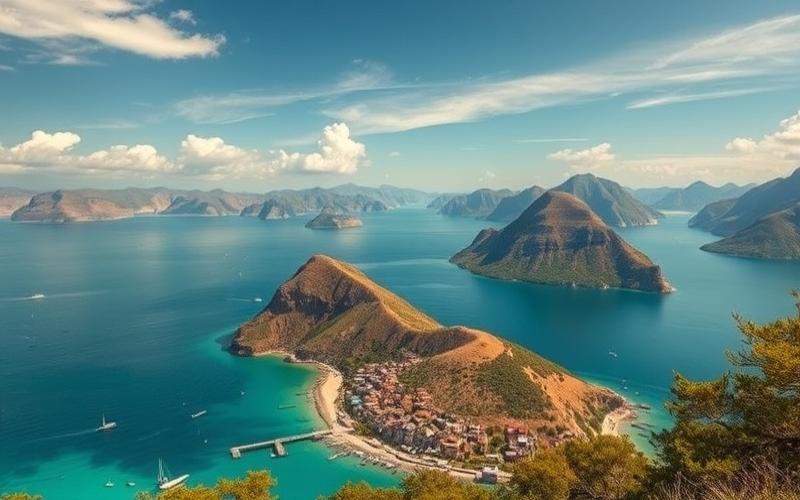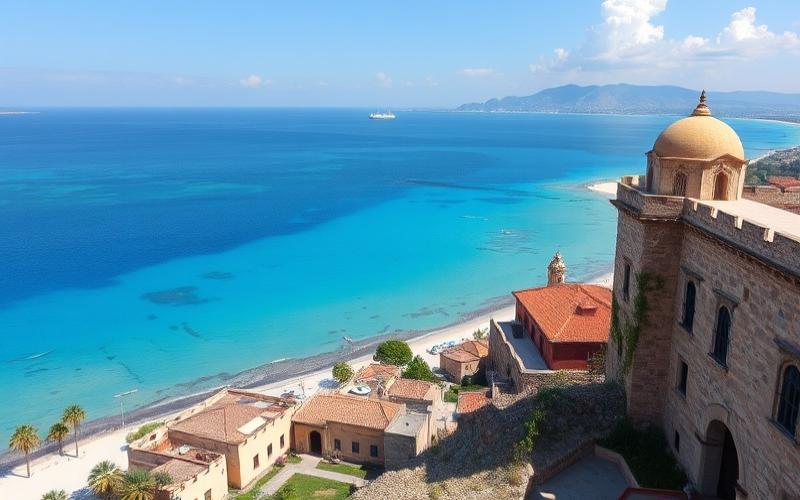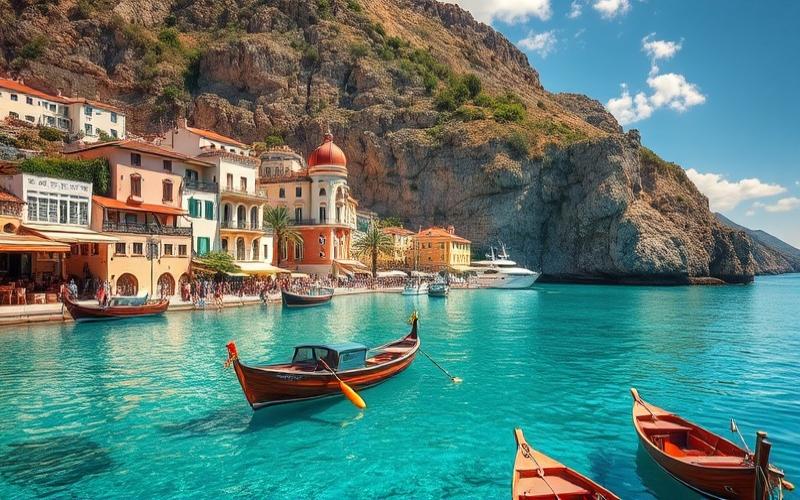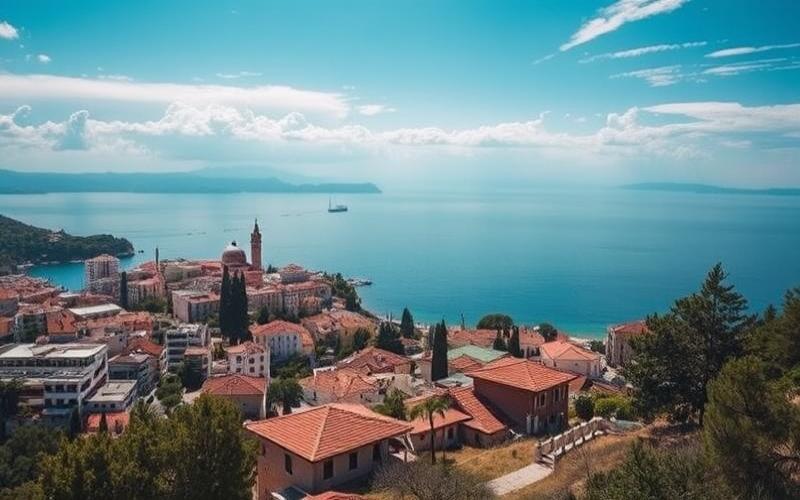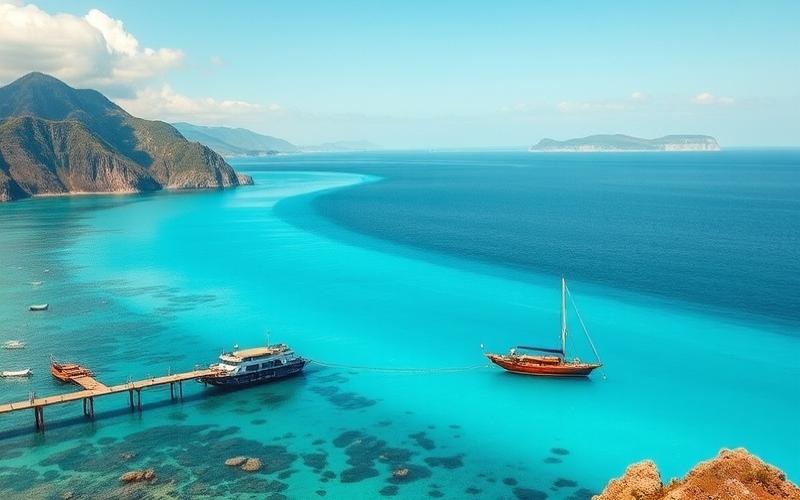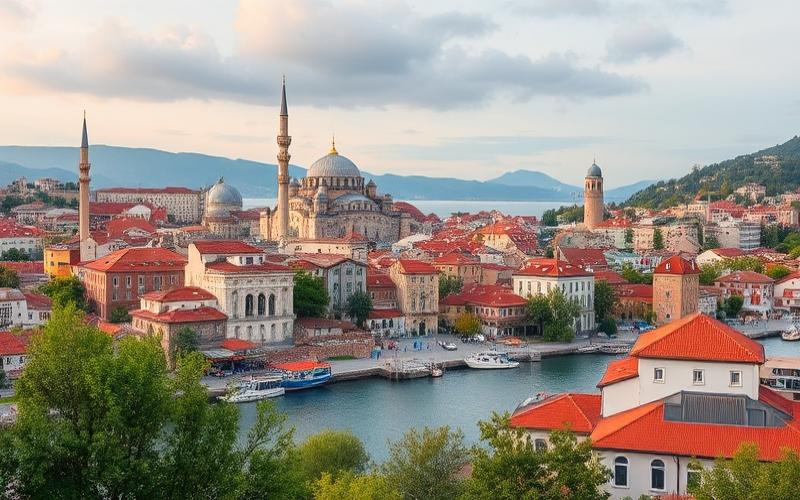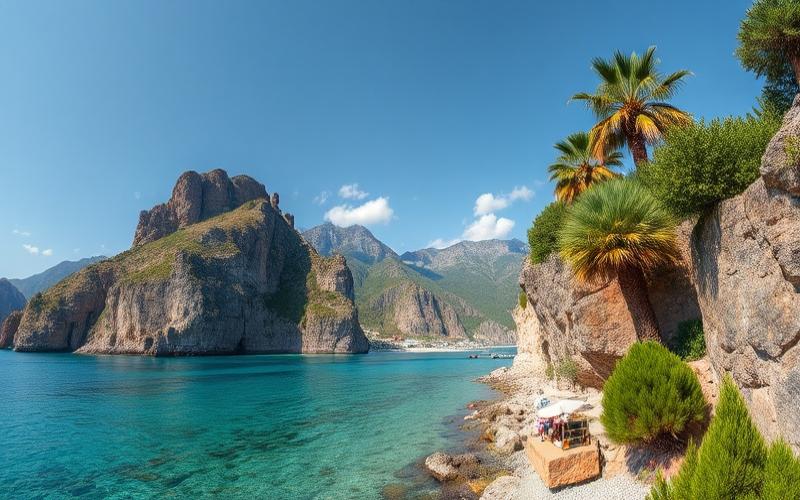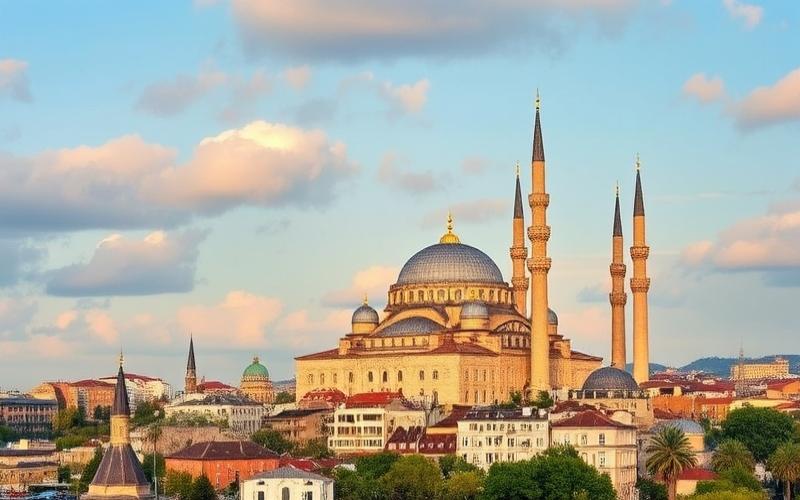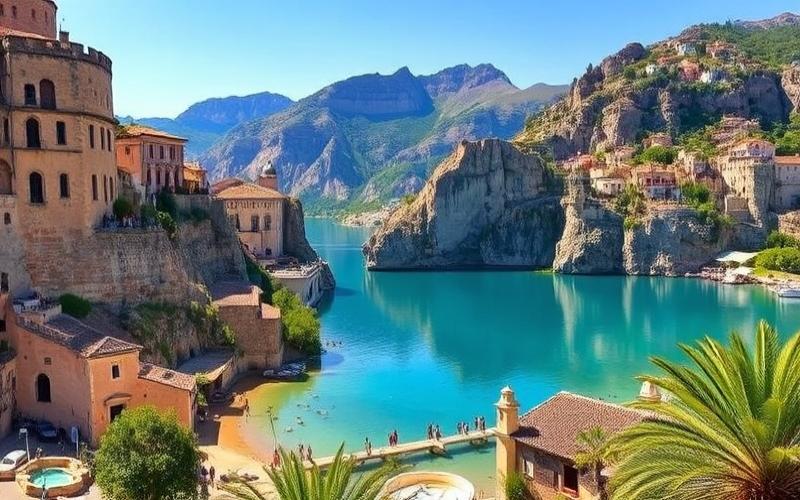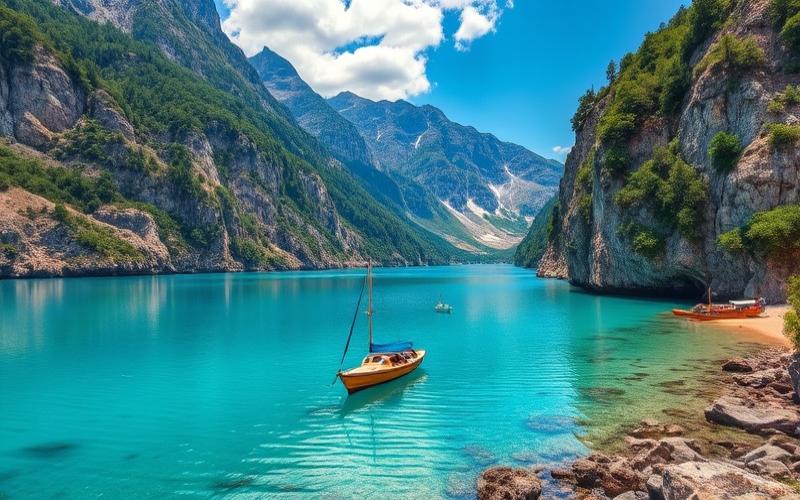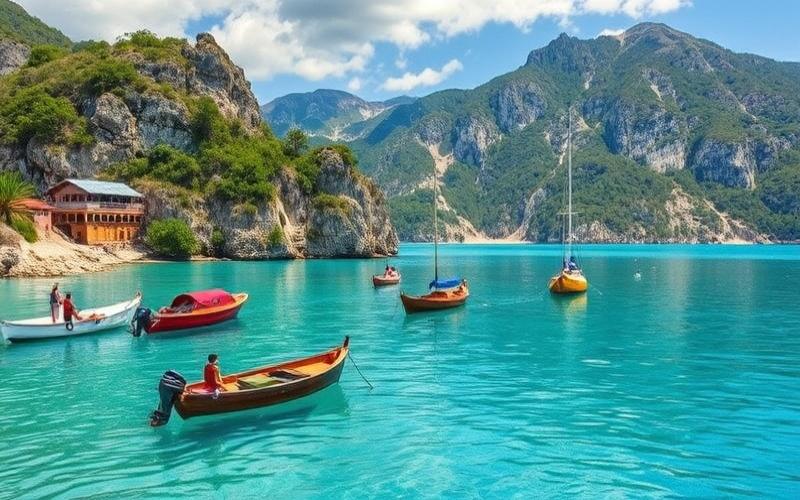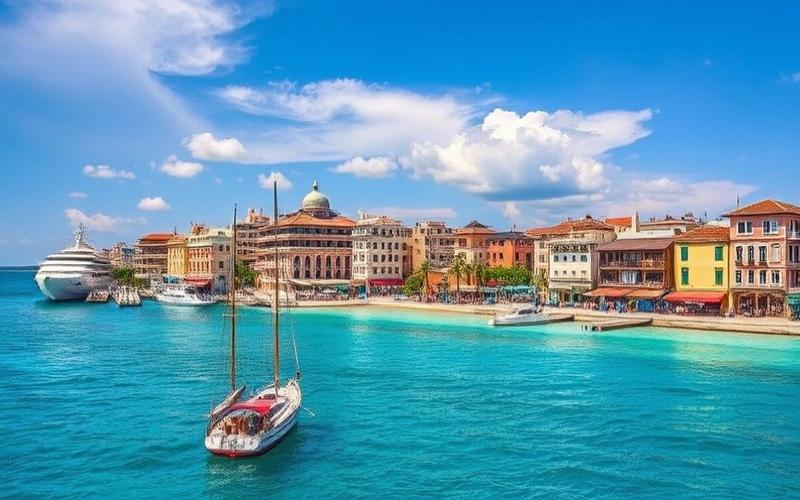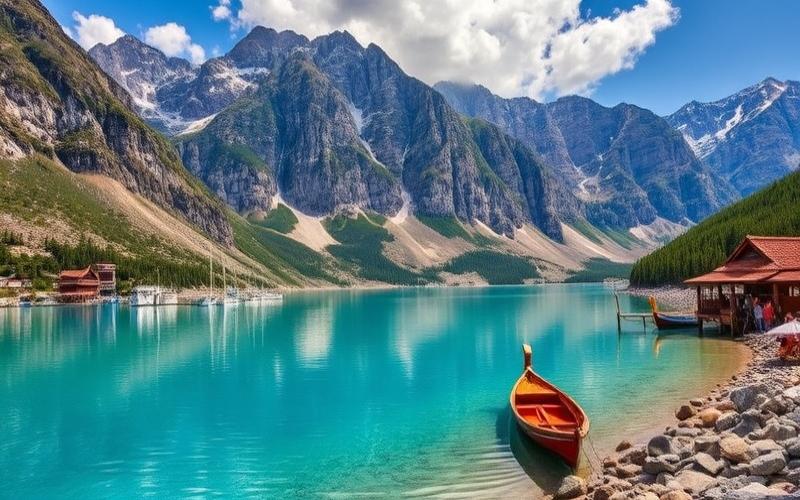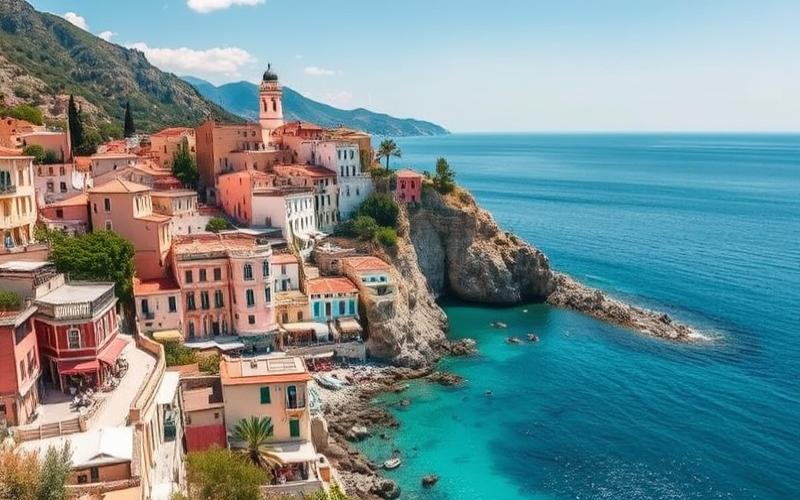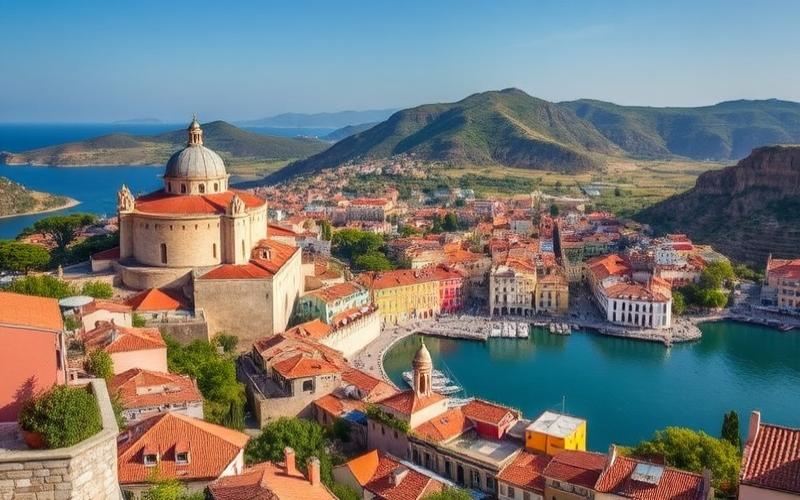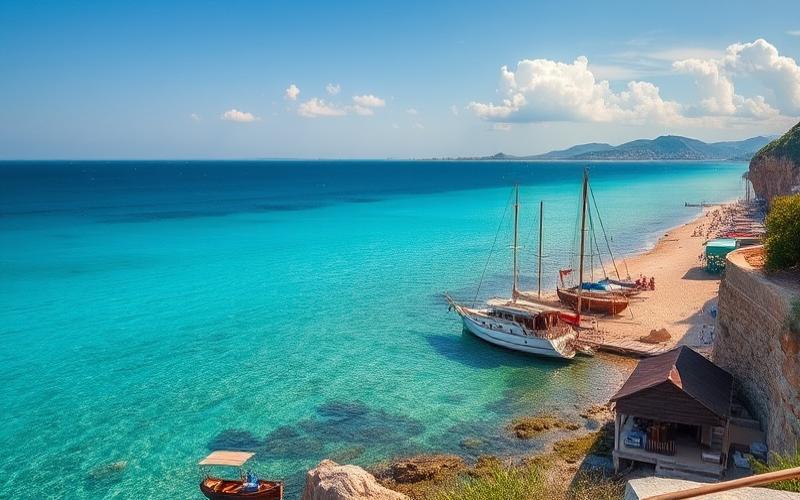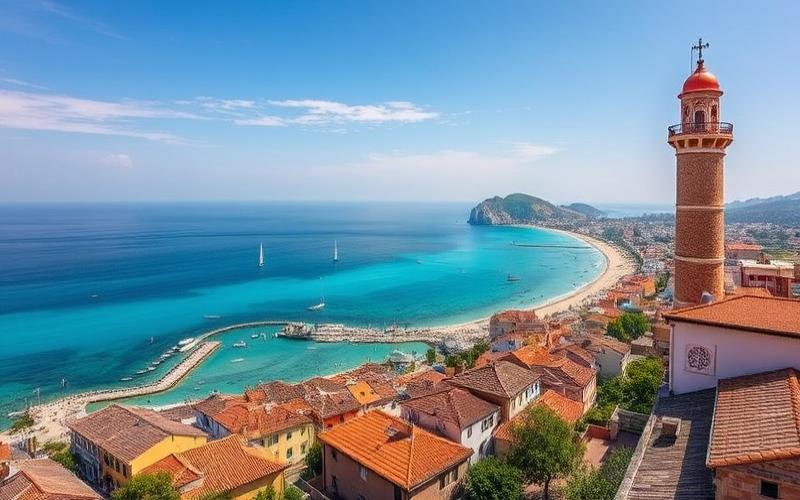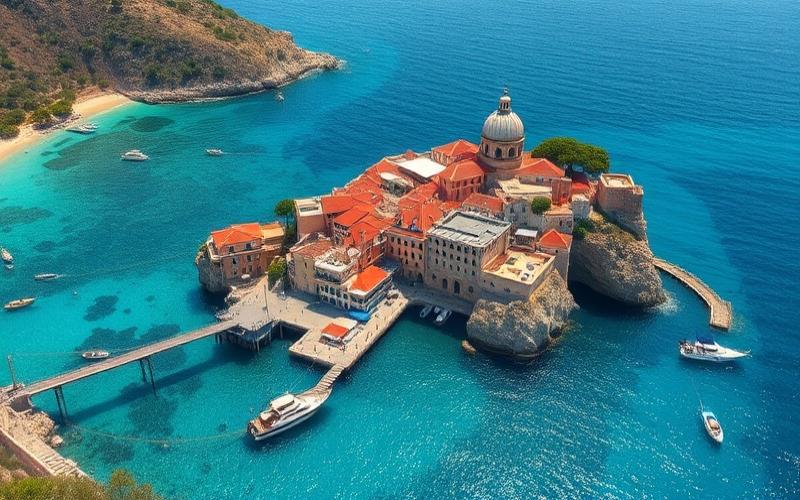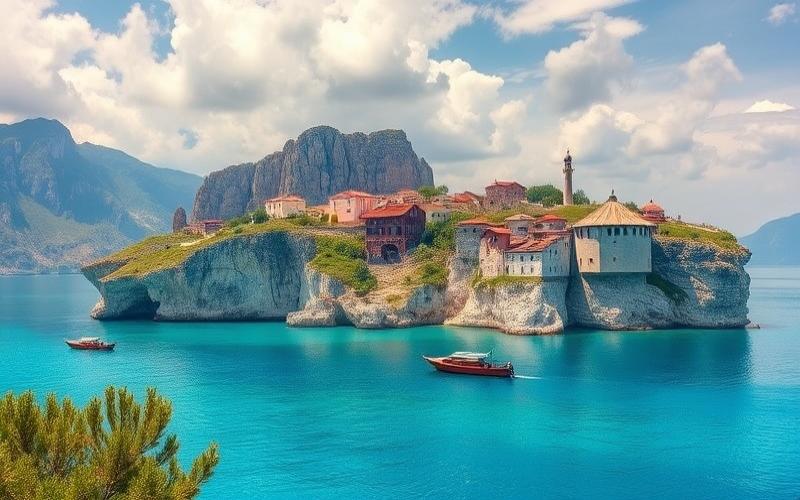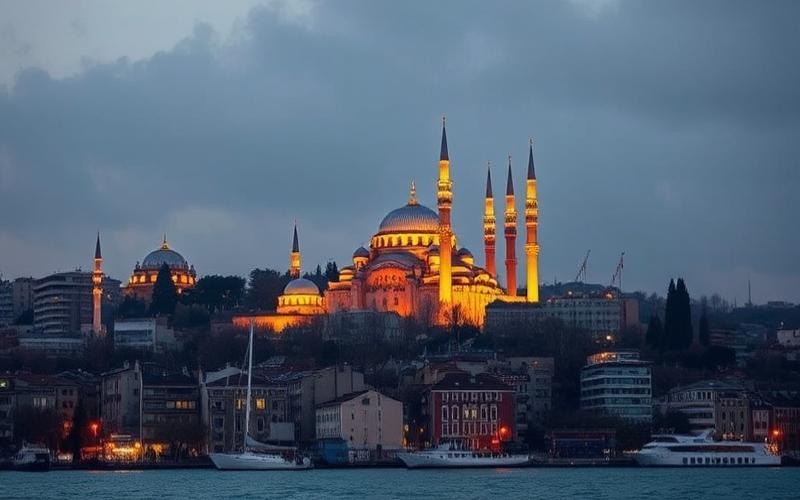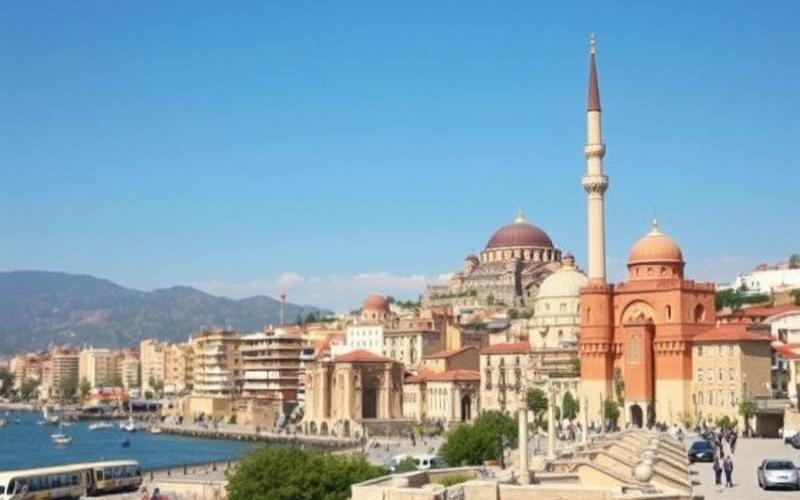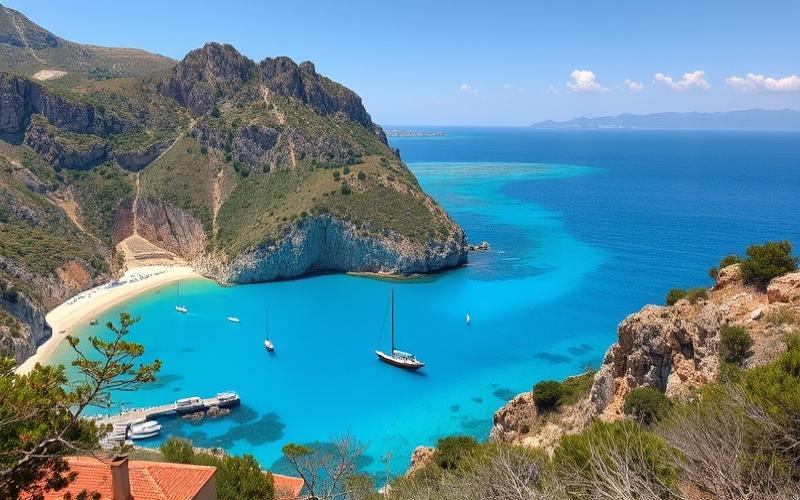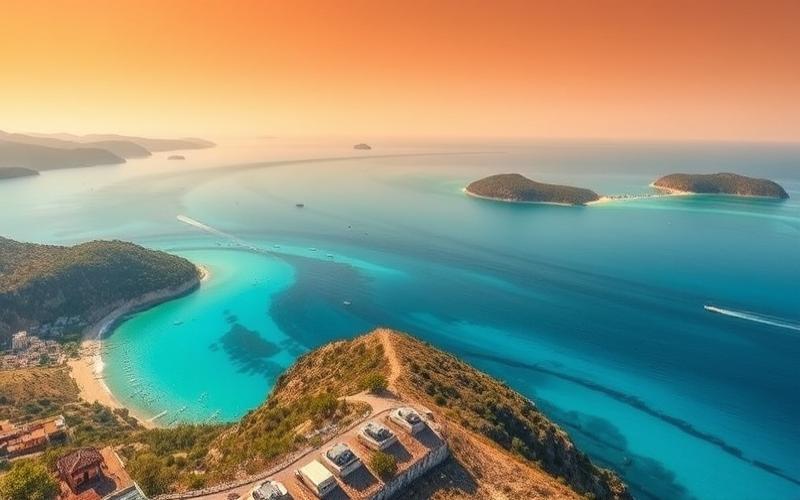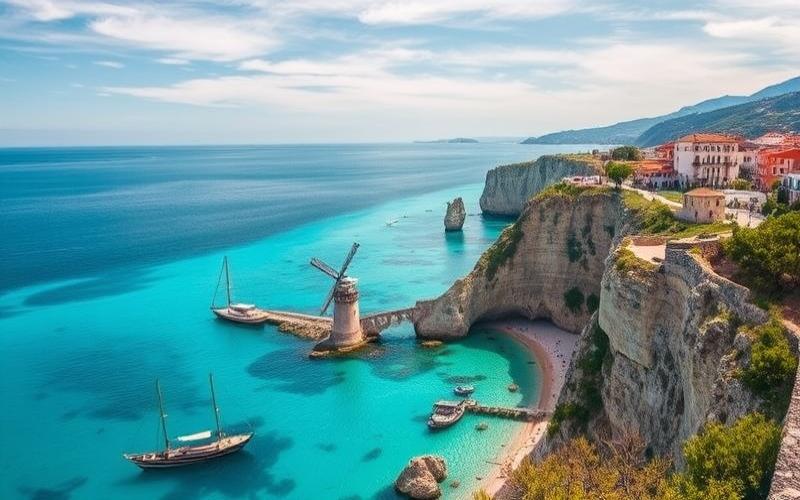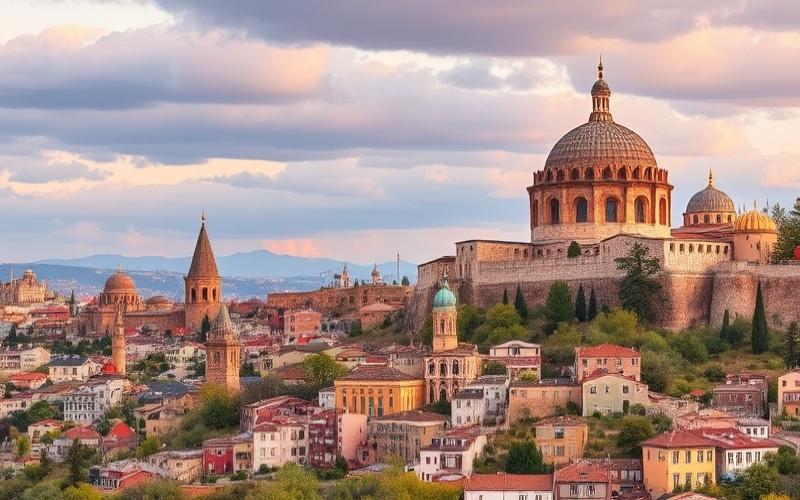
 Published on and written by Cyril Jarnias
Published on and written by Cyril Jarnias
Turkey, straddling Europe and Asia, is a land of contrasts where millennia of history blend with breathtaking landscapes. From the sun-drenched sands of Mediterranean beaches to the architectural wonders of Istanbul, through the ancient mysteries of Ephesus and the lunar landscapes of Cappadocia, this country is filled with fascinating tourist sites just waiting to be explored.
Discover Turkey’s hidden treasures and must-see attractions, from bustling bazaars to natural wonders, where every street corner tells a unique, centuries-old story.
Discovering Turkey’s Tourist Wonders
Turkey is filled with tourist wonders that blend natural, cultural, and historical riches, offering travelers a journey through centuries and landscapes.
Cappadocia
- Lunar landscapes sculpted by erosion, famous for “fairy chimneys” and rolling valleys.
- Cave dwellings, rock-cut churches, and underground cities testify to millennia of history.
- Must-do experience: a hot air balloon ride at sunrise to admire the sea of pastel colors over the valleys.
- Practical tips: book your flight in advance, prefer shoulder seasons (spring/fall) for mild weather.
Istanbul
A crossroads between Europe and Asia, the city offers a condensed version of history and architecture.
Major Sites:
- Hagia Sophia: former Byzantine church then mosque, now a museum, masterpiece of Byzantine art.
- Blue Mosque: famous for its six minarets and blue tiles.
- Topkapi Palace: former residence of Ottoman sultans, houses treasures and sacred relics.
Fun fact: the Sultanahmet district concentrates these monuments, allowing you to discover them all on foot.
Turkish Riviera Beaches
The Mediterranean coast, also called the “Turkish Riviera,” charms with its fine sandy beaches and turquoise waters.
- Patara: 20 km wild beach, bordered by ancient ruins, ideal for observing loggerhead turtles in summer.
- Oludeniz: famous for its blue lagoon, renowned spot for paragliding.
- Practical tip: prefer less crowded beaches like those on the Lycian coast for more tranquility.
Ephesus
One of the largest ancient sites in the Mediterranean, exceptional testimony to Greco-Roman civilization.
- Must-see: the Library of Celsus, the grand theater, the Temple of Artemis (one of the seven wonders of the ancient world).
- Recommended to visit early in the morning to avoid crowds and heat.
Pamukkale
White limestone terraces formed by hot springs, creating a unique UNESCO World Heritage landscape.
- The turquoise water pools invite relaxation while overlooking the ruins of the ancient city of Hierapolis.
- Tip: walk barefoot on the travertines to preserve the site and enjoy the sensation of warm stone.
Mount Nemrut
Unique archaeological site atop a mountain, famous for its colossal statues of kings and gods dating from the 1st century BC.
- Mystical place, especially at sunrise or sunset, when the statues seem to watch over the valley.
- Access recommended with a guide to discover the history of the Kingdom of Commagene and understand the symbolism of the statues.
| Site | Major Assets | Must-Do Experience | Practical Tip |
|---|---|---|---|
| Cappadocia | Lunar landscapes, cave cities, hot air balloons | Hot air balloon ride | Book early, shoulder seasons |
| Istanbul | Historical monuments, cultural crossroads | Sultanahmet district on foot | Visit early morning |
| Turkish Riviera | Turquoise beaches, wild nature, ancient ruins | Swimming at Patara or Oludeniz | Explore less crowded beaches |
| Ephesus | Greco-Roman ruins, UNESCO heritage | Library of Celsus, grand theater | Visit at site opening |
| Pamukkale | Travertine terraces, hot springs | Swimming in the pools | Walk barefoot, avoid peak season |
| Mount Nemrut | Colossal statues, exceptional panorama | Sunrise/sunset | Access with guide, bring warm clothes |
Thus, Turkey offers a kaleidoscope of landscapes and civilizations, inviting discovery, contemplation, and wonder.
Good to Know:
While exploring Turkey, let yourself be amazed by Cappadocia, where lunar landscapes unfold beneath a sky dotted with hot air balloons, offering unforgettable panoramic views. In Istanbul, the majesty of Hagia Sophia, the splendor of the Blue Mosque, and the opulence of Topkapi Palace reveal deep historical richness. On the Turkish Riviera, idyllic beaches invite relaxation, while the ancient site of Ephesus delights history enthusiasts with its well-preserved ruins. Don’t miss Pamukkale, famous for its brilliant white limestone terraces, where bathing in its natural pools is a must. Mount Nemrut, with its enigmatic colossal statues, offers a unique experience, particularly breathtaking at sunrise. A tip: visit sites early in the morning to avoid crowds and fully enjoy each wonder.
Assets and Challenges of Must-See Sites
Turkey’s must-see tourist sites offer a unique combination of historical, cultural, and natural riches, making them top destinations for travelers worldwide. However, these sites face significant challenges in preservation, managing tourist influx, and balancing development with sustainability.
| Site | Main Assets | Major Challenges |
|---|---|---|
| Istanbul | Historic center (Sultanahmet), iconic monuments (Hagia Sophia, Topkapi), cultural diversity, crossroads between East and West | Overcrowding, urban pollution, heritage preservation, real estate pressure |
| Cappadocia | Unique geological landscapes (fairy chimneys), rock churches, cave heritage, hot air balloon rides | Natural erosion accelerated by visitation, deterioration of rock formations, management of tourist infrastructure |
| Ephesus | Major archaeological site, exceptional testimony to Antiquity (Temple of Artemis, Library of Celsus), attractive to history enthusiasts | Deterioration of ruins due to visitor numbers, need for regular restorations, protection against vandalism |
| Pamukkale | Natural travertine formations, white thermal pools, UNESCO World Heritage site, combination of natural and archaeological interest (Hierapolis) | Degradation of pools by foot traffic, water management to preserve limestone deposits, access limitations for conservation |
Major Assets of Must-See Sites:
Historical Richness:
- Istanbul, crossroads of civilizations, is filled with iconic monuments, mosques, palaces, and bazaars.
- Ephesus, remnant of ancient Greece and the Roman Empire, fascinates with its majestic ruins and exceptional archaeological heritage.
Cultural Diversity:
- Istanbul combines Ottoman traditions, Byzantine influences, and modernity.
- Cappadocia reveals a unique cave culture, with villages carved into rock and churches adorned with Byzantine frescoes.
Natural Heritage:
- Cappadocia offers spectacular lunar landscapes, ideal for hiking and adventure.
- Pamukkale charms with its brilliant white travertine terraces and natural hot springs.
Challenges Faced by These Sites:
Heritage Preservation
- Mass visitation can accelerate the degradation of monuments and natural sites.
- Restorations require significant resources and expert knowledge to respect site authenticity.
Managing Tourist Influx
- Some sites, like Pamukkale or Sultanahmet in Istanbul, must limit access to sensitive areas to prevent deterioration.
- Peak visitation puts pressure on local infrastructure and the environment.
Balancing Development and Sustainability
- Tourism growth generates economic benefits but can harm long-term preservation if management isn’t rigorous.
- Implementing quotas, marked trails, and awareness campaigns is essential to ensure sustainability.
Concrete Examples Illustrating These Issues:
- Cappadocia: The rising popularity of hot air balloon rides and cave accommodations requires strict regulation to preserve landscapes and village tranquility.
- Istanbul: Safeguarding Hagia Sophia’s mosaics and managing visitor flows in the old town demand coordination between local authorities and international organizations.
- Ephesus: Archaeological excavations and ruin restoration are threatened by overcrowding, sometimes requiring temporary closure of certain areas.
- Pamukkale: Access to natural pools is restricted to protect limestone formations, and walkways have been installed to limit foot traffic.
Key Takeaway:
Turkey’s must-see sites, true jewels of world heritage, must meet the challenge of preserving their authenticity and beauty while responding to growing tourist demand. The success of this balance determines their attractiveness and transmission to future generations.
Good to Know:
Turkey is home to must-see tourist sites like Cappadocia with its fairy chimneys, Istanbul blending history and modernity, Ephesus, witness to the ancient world, and Pamukkale with its unique travertine terraces. These jewels offer unparalleled historical and cultural richness, attracting millions of visitors annually. However, these treasures face major challenges, particularly preserving their integrity against massive tourist influx. Sustainable management is crucial, with the establishment of visitor limits or creation of environmentally respectful infrastructure. Simultaneously, it’s essential to educate visitors about the importance of their behavior in conserving the beauty and historicity of these iconic sites.
Tips for a Successful Trip to Turkey: Transportation and Accommodation
Transportation in Turkey
Airplane
- Domestic flights are fast and affordable for connecting major cities and remote regions.
- Main airlines:
- Turkish Airlines: most developed domestic and international network.
- Pegasus Airlines: low-cost carrier covering numerous destinations.
- Anadolu Jet: Turkish Airlines subsidiary, extensive national network.
- Tip: Book tickets in advance, especially during high season or for popular routes like Istanbul-Ankara-Izmir. Prefer direct flights to save time.
Train
- High-speed lines connect Istanbul, Ankara, and Konya.
- Trains are comfortable and offer good value, especially for long journeys (overnight trains).
- Limitation: the network doesn’t reach all tourist regions (particularly the Mediterranean and Aegean coasts).
- Tip: Taking the train saves a hotel night on long distances.
Bus
- Very dense network connecting almost all cities and regions.
- Frequent departures from major bus stations (otogar).
- Comfortable buses, often with Wi-Fi and snack service.
- Tip: Book your tickets in advance, especially for busy routes and during national holidays.
Car Rental
- Flexible option for exploring Cappadocia, the Aegean coast, or the Antalya region.
- Main roads are in good condition.
- Tip: Compare offers online, prefer reputable agencies, and inspect the vehicle before leaving. Avoid driving in large cities like Istanbul due to dense traffic.
| Transport Mode | Advantages | Disadvantages | Main Tips |
|---|---|---|---|
| Airplane | Speed, extensive network | Security checks, outlying airports | Book early, compare airlines |
| Train | Comfort, high-speed lines | Limited network, underdeveloped to coasts | Prefer Ankara-Istanbul-Konya |
| Bus | National coverage, economical | Sometimes long journeys | Book in advance, opt for night buses |
| Car | Freedom, access to isolated sites | Traffic, fuel cost | Rent from major agencies, avoid Istanbul |
Accommodation in Turkey
- Luxury Hotels
- Present in major cities (Istanbul, Antalya) and main tourist sites.
- High-end services, often with spa, pool, and panoramic view.
- Mid-Range Hotels
- Good compromise between comfort and price.
- Often well located near historic centers or tourist sites.
- Hostels and Guesthouses
- Ideal for small budgets.
- Friendly atmosphere, sometimes shared dorms or private rooms.
- Apartment Rentals
- Practical solution for families or long stays.
- Available on specialized platforms, allow cooking on site.
- Bed & Breakfasts / Family Pensions
- Authentic experience, warm welcome, and personalized advice.
- Often located in historic neighborhoods or picturesque villages.
| Accommodation Type | Advantages | Disadvantages | Main Tips |
|---|---|---|---|
| Luxury Hotel | Comfort, full services | High price | Book in advance, compare offers |
| Standard Hotel | Value for money | Variable services | Read reviews, prioritize proximity to sites |
| Hostel/Guesthouse | Attractive price, local atmosphere | Variable comfort, limited amenities | Check cleanliness, book early in high season |
| Apartment Rental | Autonomy, space | Fewer hotel services | Read description carefully, choose central neighborhood |
| Bed & Breakfast | Authenticity, hospitality | Little anonymity | Favor well-rated establishments |
Practical Tips
- Book in advance: Accommodations near major sites (Istanbul, Cappadocia, Ephesus, Pamukkale) are in high demand, especially in summer and during religious holidays.
- Safety: Prefer central and well-frequented neighborhoods. Check recent reviews and 24/7 reception presence for more peace of mind.
- Value for money: Compare offers on multiple platforms, take advantage of off-season promotions.
- Avoid tourist traps:
- Beware of street touts.
- Prefer online bookings or directly with the establishment.
- Always ask the price before consuming or accepting a service.
- Turkish Hospitality:
- Turks are renowned for their welcome. Don’t hesitate to interact with hosts or staff, who can give you valuable regional advice.
- Accept offered tea, often a sign of welcome.
Near Must-See Sites
- Istanbul: Prefer Sultanahmet, Karaköy, or Beyoğlu neighborhoods for easy access to monuments.
- Cappadocia: Göreme and Ürgüp offer a wide choice of cave accommodations.
- Ephesus: Stay in Selçuk to be immediately near the ancient site.
- Pamukkale: The village of the same name offers family pensions and thermal hotels.
Essential Tip:
To fully enjoy your stay, alternate between different accommodation types according to your itinerary and desires, and let yourself be guided by local recommendations to discover genuine Turkish hospitality.
Good to Know:
For a successful trip to Turkey, prefer Turkish Airlines or Pegasus for affordable domestic flights and use high-speed train services between Istanbul and Ankara for a comfortable and scenic journey. Buses, operated by reliable companies like Kamil Koç or Metro Turizm, are an economical way to connect major cities. Renting a car can be a good option for exploring regions like Cappadocia, but check parking and road safety rules. For accommodation, book a luxury hotel in Istanbul in advance or opt for Airbnb apartments for a more authentic stay. Hostels and family pensions are ideal for modest budgets, often offering good value for money, especially near tourist sites like Ephesus and Pamukkale. Look for well-rated establishments and be wary of deals that seem too good to be true to avoid tourist traps. Enjoy local hospitality by asking residents for recommendations and know that cash payments are common.
Disclaimer: The information provided on this website is for informational purposes only and does not constitute financial, legal, or professional advice. We encourage you to consult qualified experts before making any investment, real estate, or expatriation decisions. Although we strive to maintain up-to-date and accurate information, we do not guarantee the completeness, accuracy, or timeliness of the proposed content. As investment and expatriation involve risks, we disclaim any liability for potential losses or damages arising from the use of this site. Your use of this site confirms your acceptance of these terms and your understanding of the associated risks.


